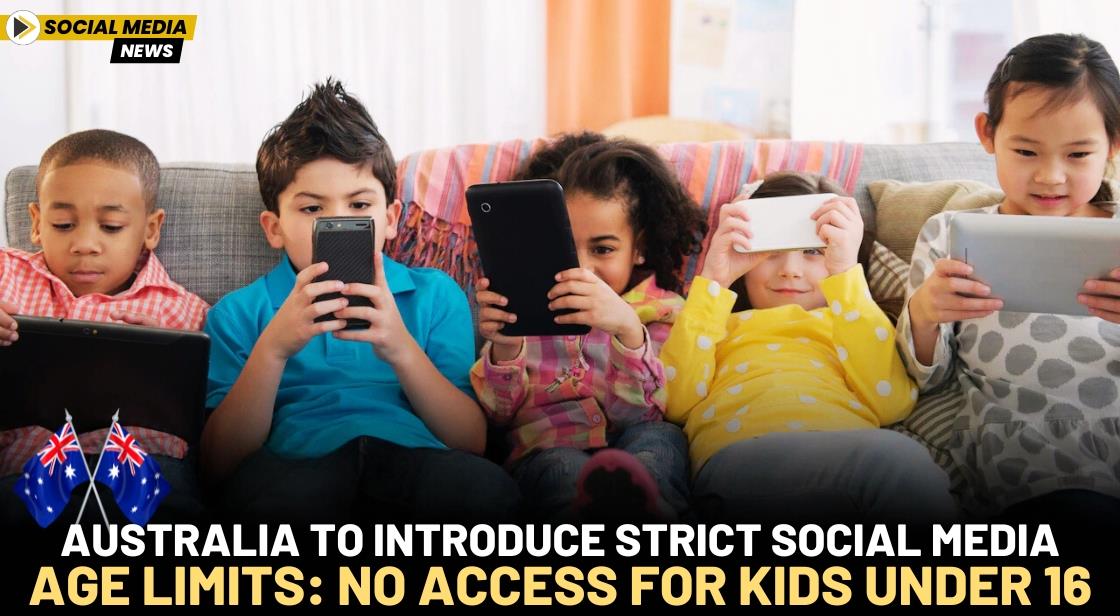Australia to Introduce Strict Social Media Age Limits: No Access for Kids Under 16

News Synopsis
Australia is set to implement one of the world’s strictest social media age restrictions, aiming to ban access for children under the age of 16. On Thursday, Prime Minister Anthony Albanese announced that the Australian government would soon introduce legislation intended to prevent younger teens from accessing social media, citing rising concerns over the impact of these platforms on children’s mental and physical health. If approved, the new measures could become law by late 2025.
Australia's proposal is groundbreaking not only for its high age limit but also for its stringent requirements that would hold social media platforms, rather than parents, accountable for enforcing age restrictions. The proposed regulations will not offer exemptions for parental consent or existing user accounts. To enforce these policies, Australia is trialing advanced age-verification techniques, including biometric scans and government identification, making it the first country to experiment with such measures at this level of intensity.
“Social media is doing harm to our kids and I’m calling time on it,” Albanese stated in a press conference.
The Prime Minister Anthony Albanese expressed his concerns over how social media usage can lead to harmful effects, especially for young girls facing issues around body image and for boys exposed to misogynistic content. He emphasized that adolescents are particularly vulnerable to these risks during formative years, describing this initiative as a move to protect children from online dangers.
Stringent Age Restrictions and Verification Methods
Australia’s approach represents a significant departure from other countries' policies. While some nations, like France, have proposed similar restrictions with age cutoffs for social media access, Australia's new proposal is stricter as it doesn't allow parental consent as a workaround. Countries like the United States have long required tech companies to obtain parental consent for collecting data from children under 13, though many platforms ban users below that age entirely. However, none have implemented age-verification technologies as sophisticated as Australia’s proposed use of biometrics and government-issued IDs.
"The onus will be on social media platforms to demonstrate they are taking reasonable steps to prevent access,” said Albanese. “The onus won’t be on parents or young people.”
Support and Concerns from Government and Industry Leaders
The opposition Liberal Party has shown support for the proposed ban, and Communications Minister Michelle Rowland described the plan as “world-leading.” Rowland specified that platforms impacted by the regulations would include Meta’s Facebook and Instagram, ByteDance's TikTok, Elon Musk's X (formerly Twitter), and potentially Alphabet’s YouTube.
While social media companies like TikTok have declined to comment on the proposed measures, industry representatives have expressed concerns. Sunita Bose, Managing Director of the Digital Industry Group (DIGI) – which represents major platforms like Meta, TikTok, X, and Alphabet's Google – argued that the ban could inadvertently drive young users toward unregulated online spaces. DIGI has called for a balanced approach that involves digital literacy education and creating safer, age-appropriate online environments rather than outright bans.
"Keeping young people safe online is a top priority… but the proposed ban for teenagers to access digital platforms is a 20th Century response to 21st Century challenges," Bose commented.
Global Context and the Next Steps for Australia’s Legislation
The proposed legislation will be introduced to the Australian parliament by the end of 2024 and, if passed, will take effect one year after ratification. The measure is expected to spark debates worldwide about how to balance internet freedom and safety for younger generations. As Australia forges ahead with this bold regulatory framework, other nations may look to its example when shaping their own policies on social media access for minors.
Conclusion
Australia’s proposed social media age restriction law could set a global precedent for child safety on digital platforms. By requiring social media companies to take direct responsibility for age verification, the legislation seeks to create a safer online environment for minors, even as industry representatives argue for alternative solutions. As the world watches Australia's progress, the outcome may shape future policies on digital safety and child protection in countries around the globe.
You May Like









